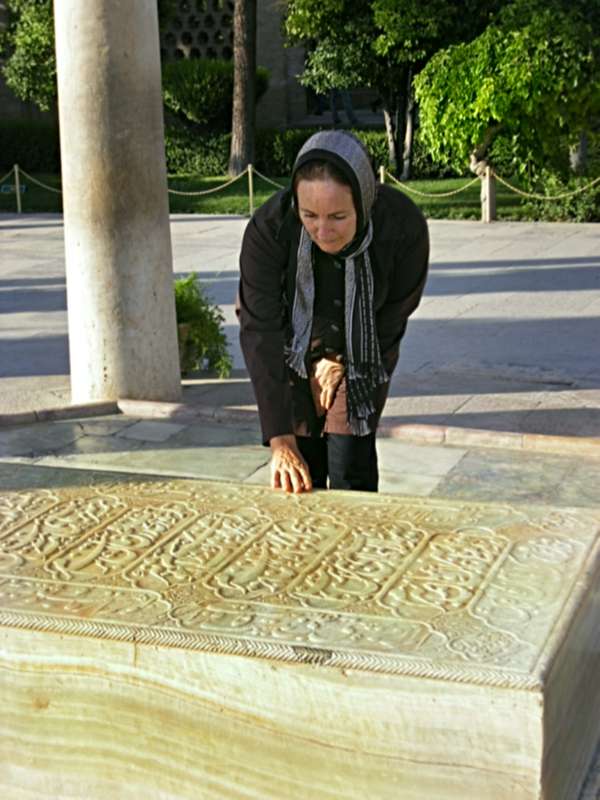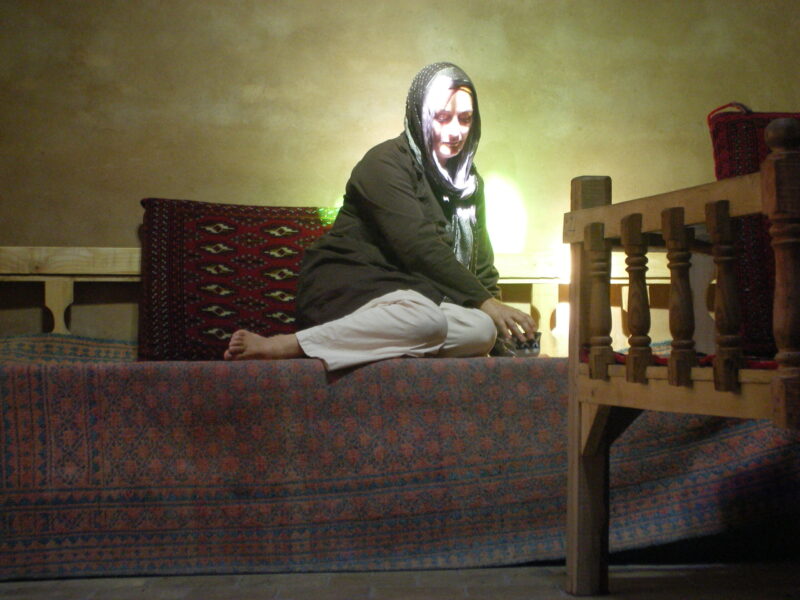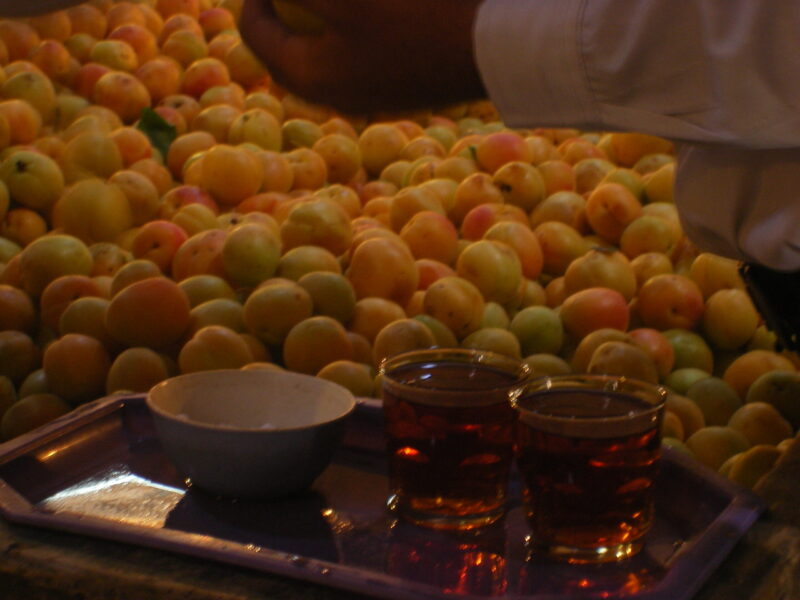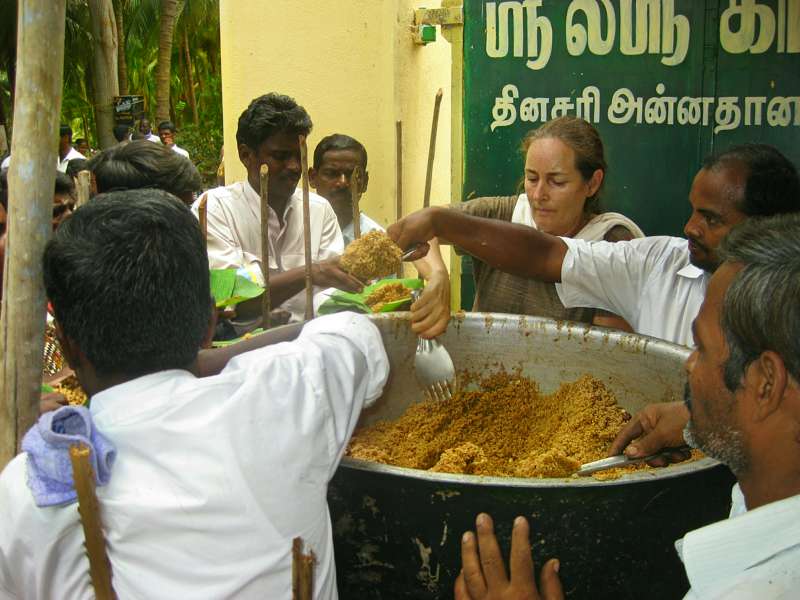
On my return from Iran I wrote this poem. It was in the days of President Bush and the threats of war. We forget, of course, and move toward the next one… But poetry can remind us of this folly. This one, a small commentary on that time, won the Byron Writers Festival Poetry Prize in 2007.
In the Garden of Martyrs, Esfahan
She licks the knife clean
of cherry jam,
dabs her lips with a tissue,
leaves an etching of
unspoken words.
She lifts the hem
of her chador
and taps
a wooden leg, ‘Sadaam’
she knocks again
and pinches her nostrils.
‘Poison bomb
bomb’ she says
‘I was three’
for eighteen years
her mourning strung
between skeletal walls
hard as adobe
the clay scent of a whole
village bleached
from her mind
that chemical mist falling
into desert air
raining still in her sleep
The sound of dust when it settles.
She fills my cup.
Stirs,
flakes of Coconut Sugar
dissolve in my tea.
She offers me cardamon sweets.
Iran Iraq Iran Iraq.
Down each row of chiseled prayer
the stare of young sepia eyes.
We wait with them
for the washing
of the tombs;
the scent of rosewater
I step between marble shrines
onto small stones
only small stones are left
to be swept by mothers,
sisters, daughters, wives.
I step into
the echo of a dome,
that pours an earthen light
into the hollow notes
of her limp
until she is gone.

Song for an Apiarist
Under storm clouds
you followed them,
one swarming body
humming inside your pulse.
A shadow play
all over your skin.
A queen and a colony
for every hand hewn hive.
You stood in timer dust
and counted them,
and let them go
their ochred way.
How many wing beats
in each transparent hovering
at the centre of a flower;
each brush of golden dust
gathered on their legs
then sealed in pollen baskets.
You held up frames of amber light
‘City of hexagons,’ you said
as you harvested, round and round,
swirling the blood, beginning
with the tale of your birth;
ending in the old spring bed.
Veiled in smoke, through forests you measured
by taste, Tallow Wood
Yellow Box, Bottle Brush.
I follow your path Grand Father.
I breathe in your pollen air.
Even as you were dying
you were spinning
honey from the comb.
Cycles of Apricots

She sits on a roof
a patchwork of cherry and apricot
all day she sits, splitting
warm fruit into two
scooping their seeds
like Caspian caviar
ripe sunflowers track the sun
She sits on her roof
that sits on walls of mud and straw
rammed between limbs
of summer poplar cut
from a gorge
of river and rock
where soft purple flowers shimmer
he winnows wheat with a pitch fork
while she sits on their roof
and traces his kiss
one memory clung
to cheekbone skin, now
like sun-dried mulberry
after their wedding, saffron rice
pickled grapes and garlic
between her perfect front teeth
he’d placed a sugar cube
and she tasted –
not the infusion of leaves
from his cup, not the sing of sugar
– she tasted him
falling to their knees that first
harvest of apricots
She sits on the roof
listening to turquoise breasted
kingfishers, the beats of a tombek
the drone of a tar
and the first whistling
of winter’s wind
wine and the last watermelon chilled
in a deep spring well
when enough seeds are gathered
and the orchard sleeps
when he has shoveled the night’s
snow from their roof, again
with river stones they break
open their shells
veins of vine leaves swell
in an earthen bowl of brine
the muezzin calls
she pulls tight the knot
of her headscarf, feeds
their hearth an olive branch
then finds for him
a golden kernel
Helping Out

There is that word love. Deed by deed, breath by breath, we can arrive in a better world. A writing life is, by nature, an isolated one. Helping others brings perspective to all those hours. It keeps things real and connected. Whether it is in an ashram caring for children and elders, or feeding pilgrims before their long trek to a mountain shrine, as shown in the photo above. Or in a Catholic hospice whose doors are open for everyone regardless of their faith.